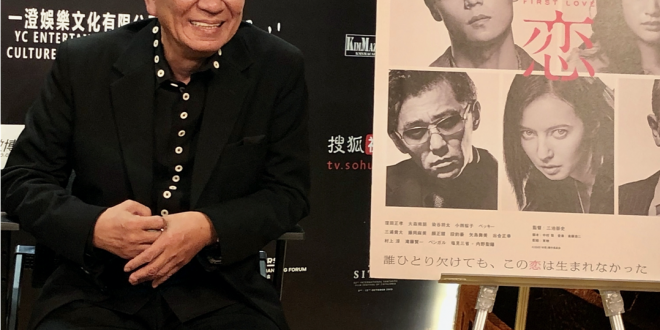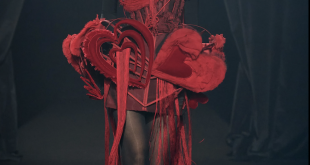Q: You said that this film is a “special” film for you, what is the reason?
Takashi: I think that film is one my most hopeful movie with some political undertone. Also it’s a movie about love, about relationship and I think this is different from my other movies in this aspect. This is why it’s so special for me.
Q: This is also again a movie about the Yakuza, the underworld, why this fascination for the yakuza?
Takashi: Yakuza are usually portrayed as the “bad guys” and for me it’s about going beyond that image and show that there are also human beings like everyone else. For me it’s about respecting the yakuza in spite of what they do. I want to show they are also capable of redemption. I really think this is a world that can be transformative though the power of love and this is important for me to show that. To show that with Love everything can be transformed, everything is possible.
Q: The movie is also about the world of boxing. Why this fascination with boxing?
Takashi: Boxing for me has always been fascinating. After losing WW2, boxing was a way for Japanese people to show they still had a “punch” and could move forward. Boxing is a metaphor about making it, striking back and showing you can win the fight in life, in a way. In a way the movie is about rebuilding yourself. We rebuilt ourselves after the war. Here, it’s about a boxer trying to figure out how to rebuild himself, to be reborn and find a new meaning to his life.
Q: How is your cinema today? Do you see differences compared to films you made after directing over 100 films?
Takashi: Sure, we all grow through our work. I try to constantly re-invent myself. I never think in term of genre I get involved with. For me, it’s all about trying to direct something different and to say something new. I hope my audience get it and is transformed with me.
By Emmanuel Itier and Roxanna Bina
 Teacups & Couture A Fashion Blog by Roxanna Bina
Teacups & Couture A Fashion Blog by Roxanna Bina









